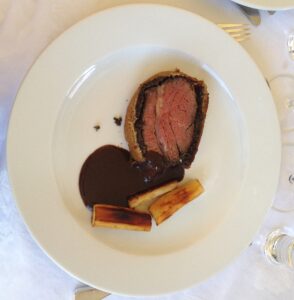My work and life, as well my work-life, have been seriously impeding the writing of this blog. No apologies; toughen up, you.
This will be a very short diary. It will not contain any links or any scholarly references. It is about a very narrow topic, from a very personal, subjective perspective.
The topic at hand is what Martin Luther King actually did, what it was that he actually accomplished.
The reason I’m posting this is because there were dueling diaries over the weekend about Dr. King’s legacy, and there is a diary up now (not on the rec list but on the recent list) entitled, “Martin Luther King, Jr.’s Dream Not Yet Realized.” I’m sure the diarist means well as did the others. But what most people who reference Dr. King seem not to know is how Dr. King actually changed the subjective experience of life in the United States for African Americans. And yeah, I said for African Americans, not for Americans, because his main impact was his effect on the lives of African Americans, not on Americans in general. His main impact was not to make white people nicer or fairer. That why some of us who are African Americans get a little possessive about his legacy. Dr. Martin Luther King’s legacy, despite what our civil religion tells us, is not color blind.
I remember that many years ago, when I was a smart ass home from first year of college, I was standing in the kitchen arguing with my father. My head was full of newly discovered political ideologies and black nationalism, and I had just read the Autobiography of Malcolm X, probably for the second time.
A bit of context. My father was from a background, which if we were talking about Europe or Latin America, we would call, “peasant” origin, although he had risen solidly into the working-middle class. He was from rural Virginia and his parents had been tobacco farmers. I spent two weeks or so every summer on the farm of my grandmother and step grandfather. They had no running water, no gas, a wood burning stove, no bathtubs or toilets but an outhouse, pot belly stoves for heat in the winter, a giant wood pile, a smoke house where hams and bacon hung, chickens, pigs, semi wild housecats that lived outdoors, no tractor or car, but an old plow horse and plows and other horse drawn implements, and electricity only after I was about 8 years old. The area did not have high schools for blacks and my father went as far as the seventh grade in a one room schoolhouse. All four of his grandparents, whom he had known as a child, had been born slaves. It was mainly because of World War II and urbanization that my father left that life.
They lived in a valley or hollow or “holler” in which all the landowners and tenants were black. In the morning if you wanted to talk to cousin Taft, you would walk down to behind the outhouse and yell across the valley, “Heeeyyyy Taaaaft,” and you could see him far, far in the distance, come out of his cabin and yell back.
On the one hand, this was a pleasant situation because they lived in isolation from white people. On the other hand, they did have to leave the valley to go to town where all the rigid rules of Jim Crow applied. By the time I was little, my people had been in this country for six generations (going back, according to oral rendering of our genealogy, to Africa Jones and Mama Suki), much more under slavery than under freedom, and all of it under some form of racial terrorism, which had inculcated many humiliating behavior patterns.
Read the rest.

